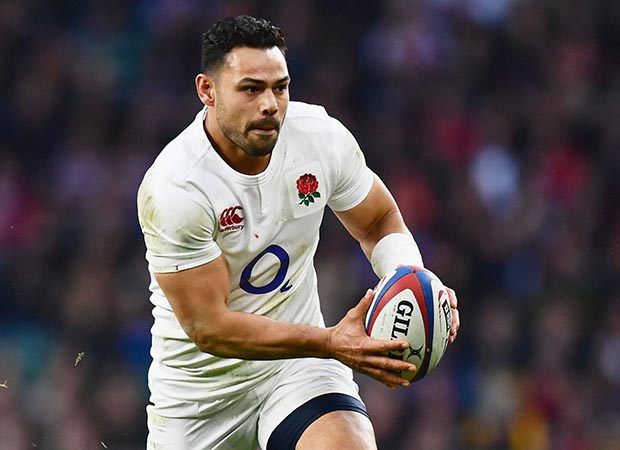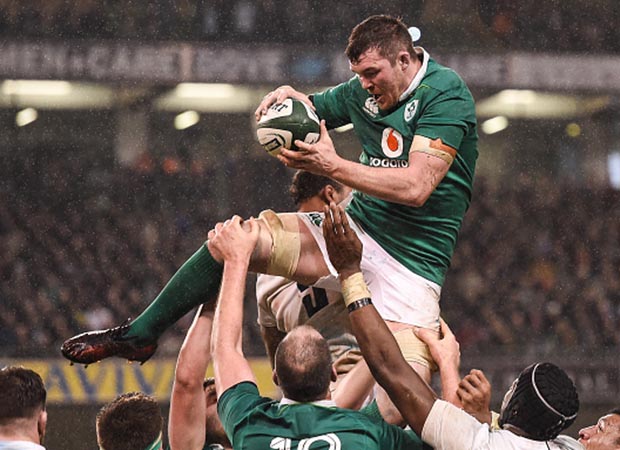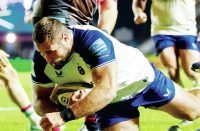 It was always going to be a tough ask to claim a second Grand Slam on the bounce in Dublin but I thought England might have more up their sleeve should it not all be going according to plan. After all, not many England teams have come away with a victory there in recent years. Add to that the media buzz around them possibly becoming history boys and suddenly there’s a massive amount of pressure on young shoulders.
It was always going to be a tough ask to claim a second Grand Slam on the bounce in Dublin but I thought England might have more up their sleeve should it not all be going according to plan. After all, not many England teams have come away with a victory there in recent years. Add to that the media buzz around them possibly becoming history boys and suddenly there’s a massive amount of pressure on young shoulders.
Outside the squad and management, everybody has been fixated on this England team becoming the first in the Six Nations era to record back-to-back Slams and while talk within the team has been about the job at hand – and not about becoming the first Tier One nation to go 19 unbeaten – even having it in your mental sphere means it is on your mind.
It’s hard to shut that out – as long as you’re saying it’s not about that by fending off questions, it’s out there.
This week was all about the management controlling the outside factors, but to keep your mind solely on the game is always incredibly hard.
But irrespective of head space, I simply didn’t understand the England tactic of ‘give the ball to Ireland‘.
It seemed England were content to just kick the ball away and try to put them under pressure. However, the big snag with that was Ireland looked happy to carry the ball back all day long. They are extremely comfortable with possession and it’s a fallacy that they kick and chase all the time. And it’s not been that way for some time.
While we have become used to Eddie Jones’ mind games and the poking of opposition, it maybe was a mistake to mention the old ‘kick and clap’ tactic – it’s all very well when you win but you make yourself look a bit silly when you lose, especially when your team incorporates that tactic and kick more than the opposition. The psychological war was lost, because of the result.
As Jones admitted afterwards, England’s kicking was just not accurate enough for that gameplan to work effectively, nor did it have the required chase to make the kick effective. Instead, what we had was the kick and no clap.
Jones also made a mistake calling out Johnny Sexton’s parents last time, suggesting they would be worried about his long-term health given the Leinster fly-half’s history of being stood down for 12 weeks in 2014 after four concussions inside 12 months.
Maybe Jones needs to learn the lesson that less is more because sometimes his sound bites can backfire.
The next game is Argentina in June, but Jones, below, will be without the core of his side on Lions duty. They’ll need to begin a new run as they build towards the 2019 World Cup because they will want momentum behind them, safe in the knowledge that they are still No.2 in the world, if not No.1 – Jones’ main target.
I saw comments from a number of my team-mates from the ’91 and ’92 Grand Slam teams echoing my sentiment that the pressure is massive going into the deciding game. The pressure may not be as big as a World Cup final but it’s right up there especially with all the fans around, media and traditions that go with the tournament. And these guys will be feeling huge disappointment that they could not close it out and continue this run.
Ireland were very smart in their play and very rarely give up momentum because they relish having possession. It wasn’t weak defence as Ireland played one-out rugby with relatively easy targets and few line-breaks – England didn’t get many turnovers from the tackle or seem to smash into the hit as they have done previously. It’s what was needed to dislodge the ball from Irish attackers.
 In fact, the game seemed visually like a stalemate. So then it came down to opportunities and every single mistake was big – bigger as the game progressed.
In fact, the game seemed visually like a stalemate. So then it came down to opportunities and every single mistake was big – bigger as the game progressed.
There were no particular moments where you could say England lost it. The Irish try was well taken in the first half, although a few England forwards seemed to help Iain Henderson over the line by coming in at the side.
But right from the start England were not prepared to open up like they did against Scotland. It looked like England had that tactic to play with hands against the Scots, but in Dublin it looked to me like they didn’t want to, knowing the Irish defence was better charged and would knock them backwards.
Instead they went with the real simple tactic of kick it and hope the forwards can grind Ireland down. Coaches get it wrong sometimes – Clive Woodward admitted his team got it wrong when they went to Dublin looking for the Grand Slam in 2001.
Ireland were steadfast but it’s hard to overly praise a standard, slightly above average performance from both teams. It was far from the thrilling final game that we anticipated, and a long way off the tournament’s best between Wales and Ireland last weekend.
I’m a little surprised changes weren’t made sooner. England were crying out for some go-forward in midfield. With Owen Farrell and Jonathan Joseph in the side, and no big wingers or real ball-carrying threat from full-back, Ben Te’o needed to come on sooner.
England needed a hard runner who would get up in the tackle zone of Sexton and Robbie Henshaw and cause confusion. You’re not going to send George Ford or Farrell in there. So it was quite simple for Ireland to read what England were doing. And to kick against Ireland is somewhat naïve as they all have a Gaelic Football background so are good in the air.
The finishers – can they still be called finishers? – came on and upped the tempo but it was hard to play that way with the bad weather coming in.
It seemed to me the tactic needed to be changed 15 or 20 minutes into the game but it was ingrained in the players and they couldn’t shake the pattern.
It’s a modern phenomenon within the game that you have a pattern of play and that is generally what they stick to. Very rarely can it come off the cuff.
The tactic needed to be smarter. Yes, Ireland did well at the breakdown but how much more did England really do to test them? It was an uninspired performance in many ways.
However, that one game should not detract from the magnificent run of wins to this point. What it does is make you realise that you are fallible, you are beatable, so make sure you are so on point it won’t happen again in a match like the quarters, semis or even World Cup final.
Losing a Grand Slam will not hurt as much as a World Cup knockout game, especially if they go in as No.1 in the world.
This defeat should not impact too much on Warren Gatland‘s Lions selection. The one player who has given himself a real fighting chance of a tour place is yesterday’s man of the match, Peter O’Mahony. I could see him being a great candidate for mid-week captain, and with his personality and never-say-die spirit is just what you need on a Lions tour – especially against New Zealand.























